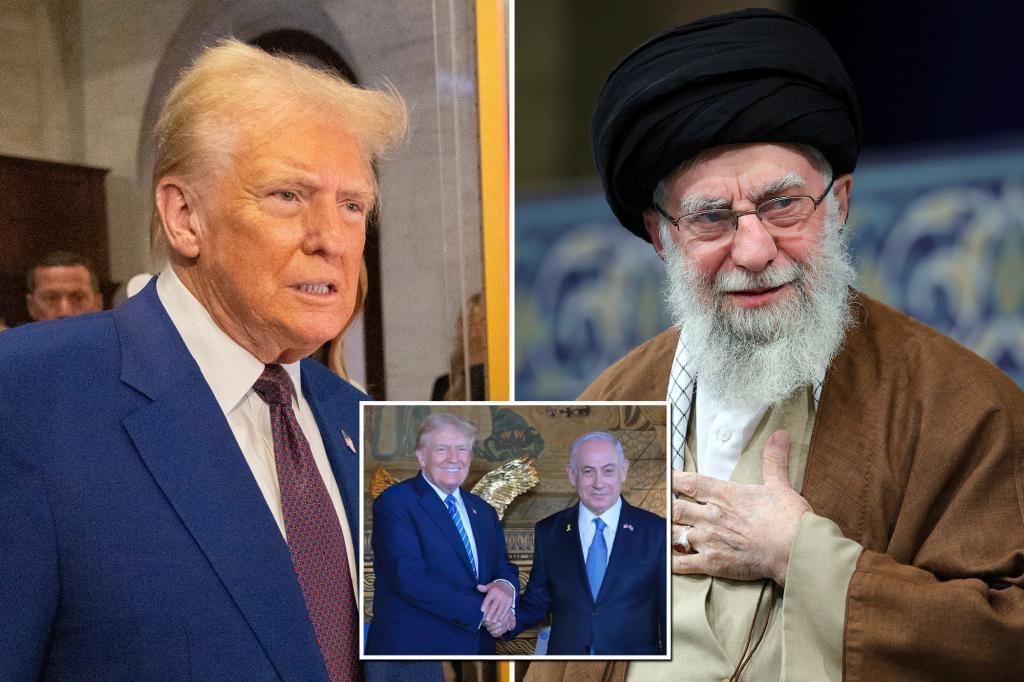Donald Trump’s presidency, both in its initial term and in his prospective second term, has been marked by a hawkish stance towards Iran, particularly concerning its nuclear ambitions. Upon entering office, Trump withdrew the US from the Joint Comprehensive Plan of Action (JCPOA), commonly known as the Iran nuclear deal, a multinational agreement designed to curb Iran’s nuclear program in exchange for sanctions relief. This move, met with international criticism, signaled a shift towards a more confrontational approach. Now, with a potential second term on the horizon, reports suggest that Trump is actively considering a range of options to prevent Iran from acquiring nuclear weapons, including the possibility of preemptive military strikes. This represents a significant escalation from the previous strategy of containment through economic sanctions.
The shift towards considering military action appears to be driven by several factors. Recent geopolitical upheavals in the Middle East, such as the ongoing conflict in Syria and heightened tensions between Israel and Iran-backed groups like Hezbollah and Hamas, have created a volatile environment. These developments, combined with intelligence reports suggesting Iran’s continued progress in its nuclear program, seem to have intensified concerns within the Trump administration. Furthermore, personal animosity between Trump and the Iranian regime, fueled by incidents like the alleged Iranian plot to assassinate him, likely contributes to the more aggressive posture.
Discussions within Trump’s transition team, according to reports, are focusing on a multi-pronged strategy. While strict economic sanctions remain a central pillar, mirroring the approach of his first term, the possibility of military action is being actively explored. This could involve increasing the US military presence in the Middle East, deploying more troops, warplanes, and ships to the region. It could also entail providing Israel with more advanced weaponry, such as bunker-busting bombs, effectively empowering a key regional ally to take action against Iran’s nuclear facilities. However, the most dramatic option, a direct US military strike against Iranian nuclear sites, remains on the table.
Despite the aggressive rhetoric and the consideration of military options, Trump appears to be seeking a strategy that exerts maximum pressure on Iran without necessarily igniting a full-blown war. The emphasis on a combination of economic pressure and the threat of military force suggests a desire to compel Iran to abandon its nuclear ambitions through deterrence rather than direct engagement. This approach carries significant risks, however. Miscalculations or escalations could easily spiral into a wider conflict, with unpredictable consequences for the region and the world.
The potential implications of a US or US-backed Israeli strike on Iran are profound. Such an action could trigger a retaliatory response from Iran, potentially targeting US interests in the region or its allies, including Israel. It could also further destabilize the Middle East, exacerbating existing conflicts and potentially leading to a wider regional war. Furthermore, a military strike could set back international efforts to prevent nuclear proliferation, potentially emboldening other countries to pursue their own nuclear weapons programs. The potential for unforeseen consequences underscores the gravity of the situation and the need for careful consideration.
While Israeli officials have remained largely silent on the specifics of potential joint military action with the US, Prime Minister Benjamin Netanyahu has publicly stated that he and Trump share a common view on the Iranian threat. This suggests a degree of coordination and shared strategic goals between the two countries. Iran, for its part, continues to deny any intention of developing nuclear weapons, despite evidence suggesting otherwise. The international community remains deeply concerned about Iran’s nuclear program and the escalating tensions in the region. The coming months will be crucial in determining the course of action the US will take, and whether a diplomatic solution can be found to avert a potentially catastrophic conflict.

